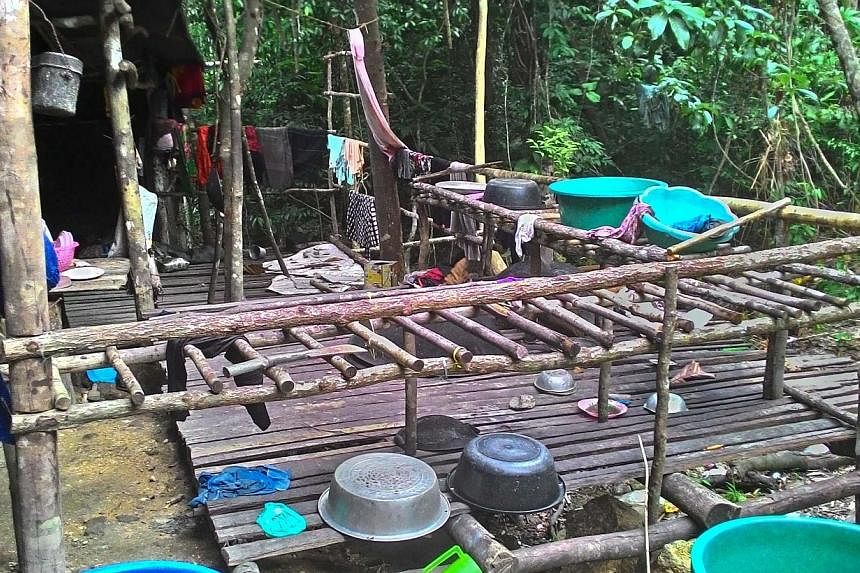MALAYSIAN police are working to determine whether the remains uncovered at 139 grave sites and 28 abandoned camps were those of Rohingya and Bangladeshi migrants, as the scale of the region's human trafficking trade begins to hit home.
National police chief Khalid Abu Bakar said the remains were being exhumed and it remained unclear how many bodies might be buried in the area, located in a remote and hard-to-reach patch of mountainous jungle along the Thai border.
"It saddens me... Even if it was just one person, it is still (considered) human trafficking and here we have 139 grave sites," Tan Sri Khalid told a press conference in the northern state of Perlis.

From May 11 to last Saturday, police personnel searched an area spanning 49.5km which was broken up into sectors A to C. The 139 grave sites and 28 camps, as well as a highly decomposed body, were found in sector A, where the terrain is steep and hilly. "One of them (the camps) was big and could accommodate 300 people. Another could take 100. The rest were smaller, for 10 to 20 people," said Mr Khalid.
He said the camps were about 3km from one another and two or three appeared to have been abandoned for more than a year.
On why the camps had not been discovered earlier, Mr Khalid said the sector was not patrolled due to its unfriendly terrain.
"We don't patrol the area, which is hilly, and we had no information of people entering the country illegally from there. There are also no passages in the area used for smuggling activities," he said.
"It was only after the Thai authorities found camps on their side earlier this month that we began exchanging intelligence and started our checks here."
Mr Khalid added the authorities had been able to get information on the holding camps after detaining 37 suspects, but could not pinpoint the exact locations.
On his official Facebook page yesterday, he also said the police have charged 86 individuals since last year under the Anti-Trafficking in Persons and Anti-Smuggling of Migrants Act.
Home Minister Ahmad Zahid Hamidi told reporters that the authorities were working closely with their Thai counterparts to determine whether the bodies exhumed were victims of human trafficking.
Tests would also be conducted to find out if they were Rohingya or Bangladeshis, he added.
Earlier this month, the Home Ministry denied the existence of holding camps in Malaysia after 30 bodies were found in a human trafficking camp in Thailand's southern Songkhla province.
Prime Minister Najib Razak, writing on Facebook and Twitter, said yesterday he was "deeply concerned" following the discovery of the graves, and pledged to "find those responsible".
Later, speaking in Tokyo after talks with his Japanese counterpart Shinzo Abe, Datuk Seri Najib urged Japan and other countries to help tackle the migrant crisis.
An international problem required an international solution, he said.
- SEE OPINION

